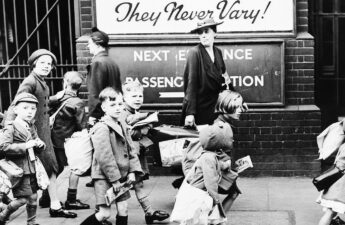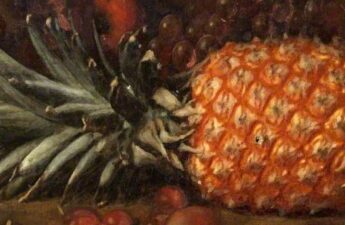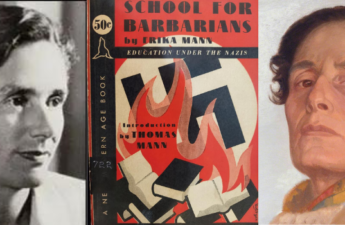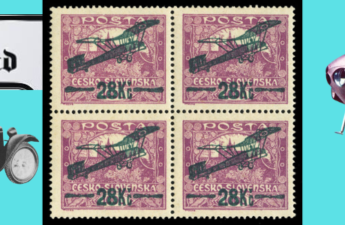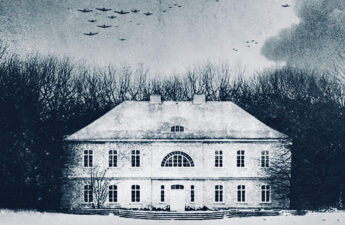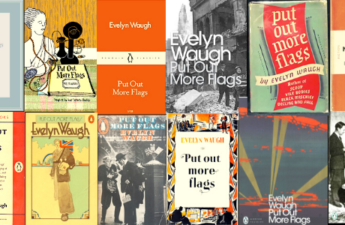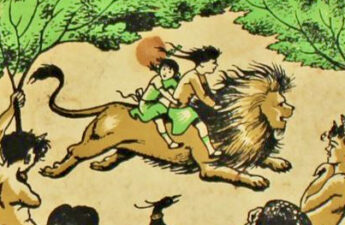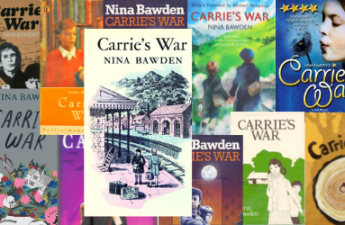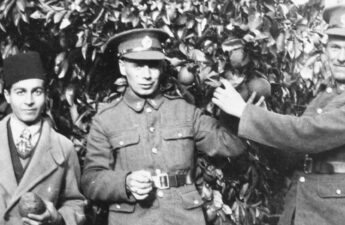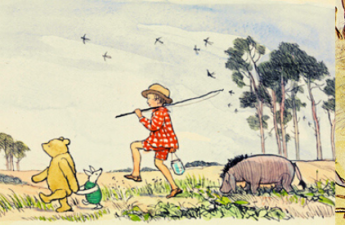The disruption to schooling in the early months of the pandemic led me to 1939, Operation Pied Piper, and the work of pediatrician and psychoanalyst Donald Winnicott. Under Operation Pied Piper, close to a million children living in cities were separated from their parents and evacuated to safer areas. An evacuation on such a large scale was unprecedented. Britain was…
Tag: WW2
1940 and the #1940Club
Hope I’m not jumping the gun here but the #1940Club starts next week and I’ve been gearing up and getting ready. The idea is simple. It’s a fun event with no pressure because you can choose anything from the year and read as much or as little as suits you. You can share on your blogs, Twitter, Instagram, Goodreads, in…
The Pineapple Party
Norman Pearson returned towards the end of January, after an absence in Spain and Portugal, bearing two bananas, two oranges and a pineapple. The bananas and oranges were simple, Hilda and I had one each. Apart from a few green apples and some berries in Cornwall, it was the first fruit that we had tasted for two years. It seemed…
Literal Nazis and the Retro-transing of History
Researching Marienbad and the Savoy led me to Erika Mann and all the gossip, scandal, politics, and drama of her family. I wanted to read her account of life in pre-war Germany The Lights Go Down in part of my preparation for the 1940 Club and here. I couldn’t track down a copy so I read School for Barbarians: Education…
Our Flag Stays Red – Communists and Snore Detectives at the Savoy
In Our Flag Stays Red (1948) Phil Piratin – the Communist Party MP for Mile End – wrote an account of the 1940 occupation of the Savoy Hotel. This is just one of the many stories I came across in the research for the Marienbad – my post about Fritz Stingl and his escape from Czechoslovakia in 1939. Fritz was…
Marienbad
Every Christmas growing up my family received a greeting card from the Stingl family. I knew that my grandmother, mother, and aunt had known Fritz Stingl in the 1930s. He was Czech and he had arrived at Croydon airport as a refugee and been turned back even though they were at the barrier waiting to sponsor him. And then there…
October , Propaganda, and Mrs. Miniver Buys the Chrysanthemums Herself
The Year Begins in October Armistead Maupin based his vignettes of gay life in 1970s San Francisco – Tales of the City – on Jan Struther’s Mrs. Miniver (1939). They first appeared in a long-running serial in the San Francisco Chronicle. Instinctively I wanted to write a gay male Mrs Miniver, the minutiae of gay life with Michael Tolliver as…
All for Nothing
Hands down, this is the best book I’ve read all year: All For Nothing by Walter Kempowski. It’s the bitter winter of 1945. An odd assortment of people lives in the Georgenhof – a small neglected estate in East Prussia. Eberhard von Globig is a Sonderführer, a special officer in the German army away in Italy confiscating wine and olive…
Evacuee Story Lines #3 Evelyn Waugh
I did, in the first weeks of the war, before I got my commission, suffer severely from ‘evacuees’.– Evelyn Waugh in a preface to Put Out More Flags complaining about evacuees much as he might have done about gout or rising damp. Evelyn Waugh is often at his most entertaining when he is at his most disagreeable. Reading Waugh – and…
Evacuee Story Lines #2 C. S. Lewis
“What are you doing in the wardrobe?” “Narnia business” C.S.”Jack” Lewis spent childhood years in a house in Belfast where he and his brother immersed themselves in myths and legends. They spent wet afternoons sitting inside an old and cavernous wardrobe where they told each other tales of a magical kingdom of talking animals. The world of Narnia was rooted…
Evacuee Story Lines #1 Nina Bawden
All our stories begin before we are born. Not Just the blue eyes or flat feet we inherit, but the stories we hear from uncles and aunts, from grandmothers and grandfathers. Even if oral history is no more reliable than the party game of Chinese whispers, everyone bringing to it their own subjective lumber of myths, half-truths, fancies and deceits,…
War Souvenir
My father did not bring much back from his six years of war. He would have had his demob suit of course, and I remember a leather jerkin that he wore into the 1960s. Then, in common with millions of other military personnel and civilians, there was the case of what we now call PTSD. There was also his War…
The Thinking
This post is in answer to the question “Operation Pied Piper: What were they thinking?” At least in terms of the evacuation scheme. The choice of code-name remains ambiguous. It begins with a little history. Napoleon In the first years of the 19th century, Napoleon made no secret of his intention to invade Britain, destroy the monarchy and take…
Bertie Wooster v. Christopher Robin
P.G.Wodehouse and A.A. Milne were the same age and in 1941 they were both close to 60. As young men about town in Edwardian London they had moved in the same social and literary circles, belonged to the same club and played on the same cricket team. They were friends. Bertie Wooster and Christopher Robin are of course fictional characters…
What ho! George Orwell and Cancel Culture
Few things in this war have been more morally disgusting than the present hunt after traitors and Quislings. At best it is largely the punishment of the guilty by the guilty. In England the fiercest tirades against Quislings are uttered by Conservatives who were practising appeasement in 1938 and Communists who were advocating it in 1940. –George Orwell P.G.Wodehouse –…
